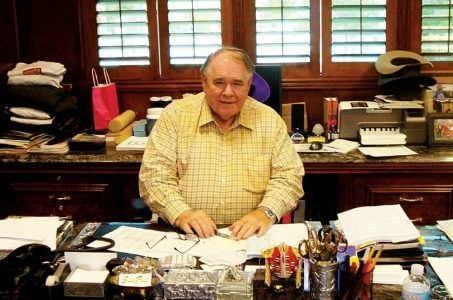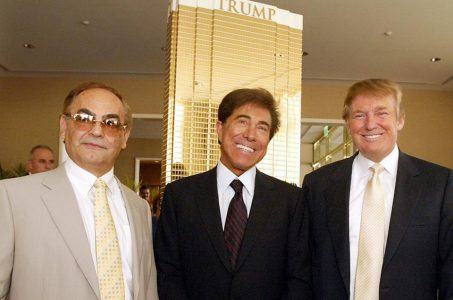Gaming Money Battles: Which States Fought It Out with Operators, and Who Won In 2017
Posted on: December 28, 2017, 10:00h.
Last updated on: December 13, 2017, 01:56h.
Florida spectacularly failed to seal the deal with the powerful Seminole tribe on what would’ve been the biggest tribal casino revenue sharing deal in the history of the US in 2017.

In 2016, the tribe had agreed on a new compact, thrashed out with Governor Rick Scott, which would have been worth $3 billion to the state over seven years, but the legislature rejected the deal.
In 2017, a wide-ranging gambling bill was aimed at expanding gaming in the state and reinstating the megadeal, but this time the tribe wasn’t biting.
Its hand had been strengthened by a federal court judgement which ruled state gaming regulators had violated the tribe’s original compact by allowing the state’s parimutuel venues to offer so-called banked games. The court declared that the violation gave the Seminoles the legal right to offer banked games exclusively until 2030.
The tribe was suddenly in no mood to sanction any form of gambling expansion and was certainly not prepared to pay $3 billion for the privilege, while seeing its hegemony on blackjack eroded. Florida missed its big opportunity.
Tribal Warfare
Meanwhile, in New Mexico, the Pueblo of Pojoaque found itself in a similar situation. Like the Seminoles, its compact had expired in 2015 and it was reluctant to sign a new one, accusing the state of demanding an “unreasonable” share of slots machine revenue.
But unlike the Seminoles, the Pueblos lacked the financial resources to continue battling in court. The state argued it was simply asking the Pueblos to pay the same amount as other tribal operators, but the tribe complained that gaming in New Mexico had flattened out and the state had unjustifiably increased its cut.
In August, unwilling to take the issue to the Supreme Court, the tribe caved in, agreeing to sign a new deal.
Elsewhere, the Stockbridge-Munsee tribe took umbrage in Wisconsin where the state had permitted the rival Ho-Chunk tribe to build a new casino 20 miles down the road from the Stockbridge-Munsee reservation.
The tribe sued the state and threatened to withhold $1 million in revenue sharing payments. But in October, a federal judge ruled the tribe had filed its lawsuit too late to block the new casino.
The tribe called the decision “outrageous” and said it will appeal.
Senecas Spot a Loophole
In New York State, the Senecas were also withholding payments, as they did in 2009 over state-sanctioned gaming expansion and compact violation, a battle New York ultimately lost.
This time the Senecas were claiming they were under no obligation to continue making revenue-share payments at all under the terms of their 2002 compact, which expired in 2016.
The deal was due to roll over for another seven years, provided neither party objected, which it did. But the Senecas claimed there was no stipulation that revenue share payments would also roll over.
Nice try, said New York, but no dice. In September, the state formally declared the Seneca Nation to be in violation of its compact, delivering an 11-page demand for legally binding arbitration.
Expect fireworks in the New Year.
Related News Articles
Most Popular
Oakland A’s Prez Resigns, Raising Questions About Las Vegas Move
Vegas Casino Resorts Install Detectors to Smoke Out Vapers — Report
Most Commented
-
UPDATE: Whiskey Pete’s Casino Near Las Vegas Closes
— December 20, 2024 — 33 Comments -
Zillow: Town Outside Las Vegas Named the Most Popular Retirement City in 2024
— December 26, 2024 — 32 Comments -
Oakland A’s Prez Resigns, Raising Questions About Las Vegas Move
— December 27, 2024 — 9 Comments -
UPDATE: Former Resorts World & MGM Grand Prez Loses Gaming License
— December 19, 2024 — 8 Comments
















No comments yet